'Lack of consistency' warning over funding for new Carers Act
- Published
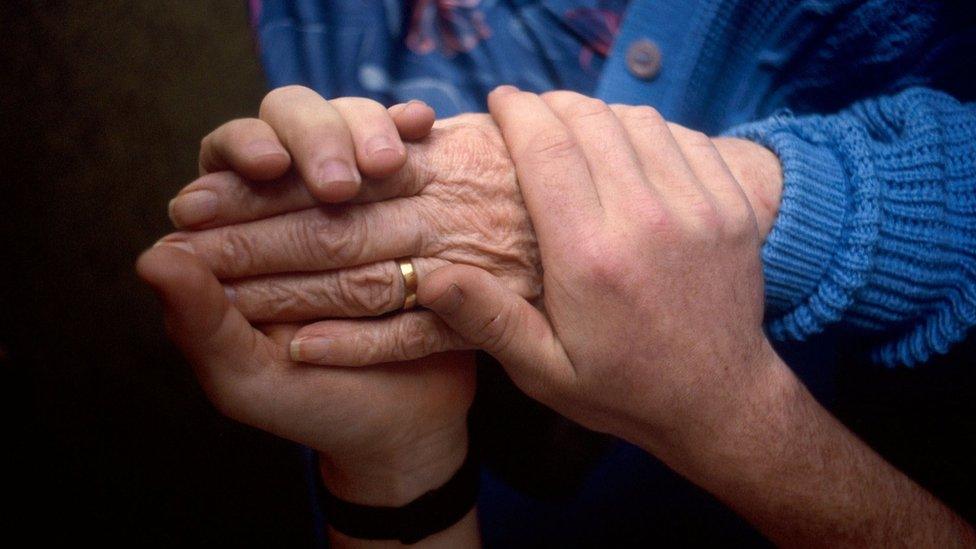
The Scottish government's draft budget for 2018-19 contained a commitment of £19.4m to support the implementation of the new legislation
Money for implementing a new law to support unpaid carers in Scotland is being spent inconsistently by councils, according to charities.
The Carers (Scotland) Act 2016 came into force last April giving carers a legal right to support.
This included counselling, practical help, training and short breaks.
Figures given to BBC Scotland's The Nine suggested more than a quarter of government funding for councils to roll out the Carers Act has not been spent.
The Scottish government said while each council may vary in how they spend the money it should be used to support carers.
Cosla, the body that represents Scottish councils, said different local authorities "will have different ways of spending the limited resources on offer to achieve their aims".
The Scottish government's draft budget for 2018-19 contained a commitment of £19.4m to support the implementation of the new legislation, including £2m for "workforce development".
In December 2018, three charities which represent carers sent Freedom of Information (FoI) requests to all Scottish councils asking how they had spent their share of this funding.
They said their findings suggested that £5.4m of the funding had not yet been spent, and that figure could prove to be as high as £9m once local authorities have provided full evidence of how they have spent the funding.

What is the Carers Act?
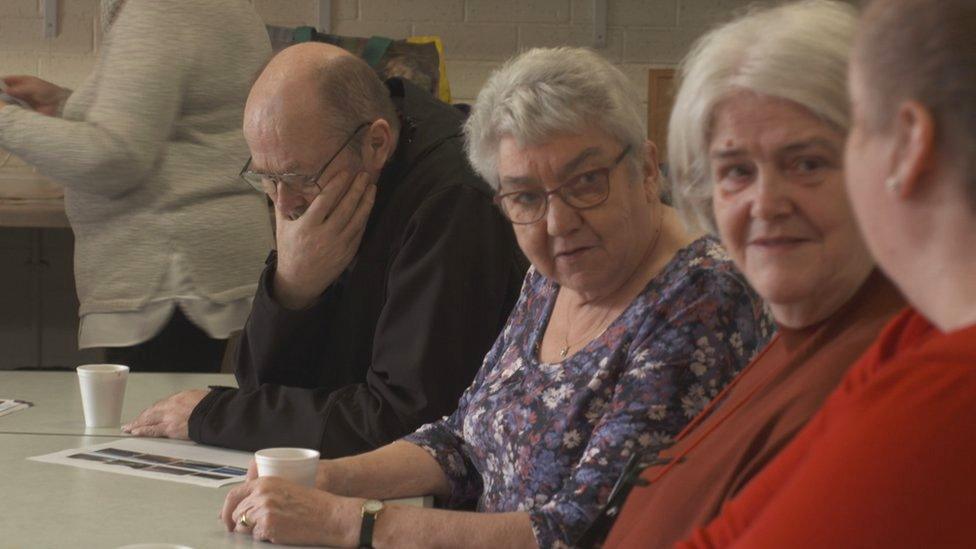
The act aims to give carers a legal right to support such as training, advice, respite and short breaks
The Carers (Scotland) Act 2016 enshrines in law, for the first time, a duty on local authorities to provide support to carers, if they meet eligibility criteria set by the council.
Prior to this carers had the right to have their needs assessed, but not a right to support services.
The act gives every adult carer the right to an Adult Carer Support plan, and every carer under 16 the right to a Young Carers Statement. These are personalised support plans which identify carers' needs.
The Carers Act also places a requirement on local authorities to have an information and advice service for carers.

Claire Cairns, from Coalition of Carers in Scotland, said its research had revealed a "lack of consistency" in the way the Carers Act was being delivered.
"When the act was brought to parliament, the minister said, 'this is to provide support on a more consistent basis.' That was the phrase he used, and I think that's one thing the Carers Act hasn't achieved," she said.
"Some areas haven't fully committed the funding they received from the Scottish government and actually spent it on carer support."
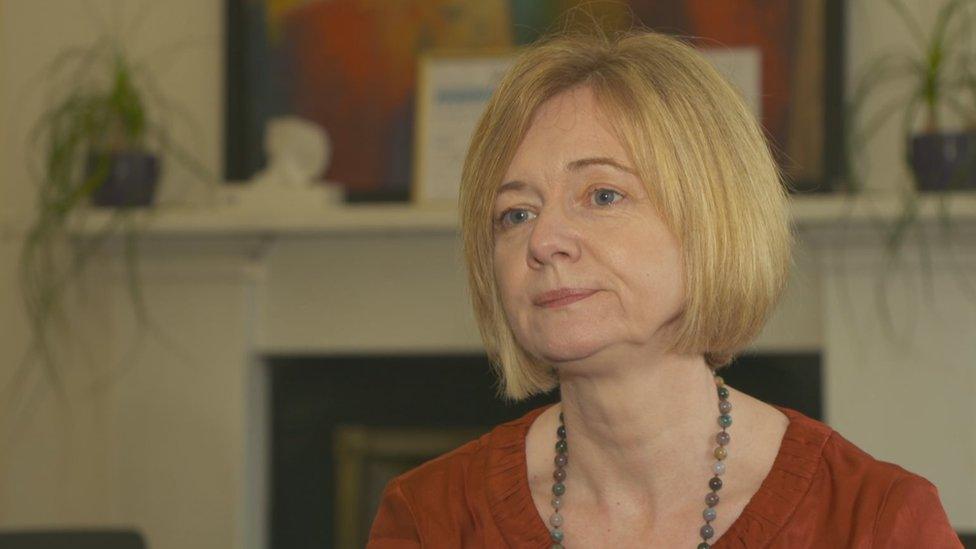
Claire Cairns, from Coalition of Carers in Scotland, said more resources were required to ensure carers get the support they need
Ms Cairns also said there had been a rise in referrals to carer centres across Scotland.
"It means carers are getting support earlier which is exactly what the act should be doing," she said.
"But the knock-on effect in services is there needs to be more resources to make sure that when carers come in through the door they're getting the support they're looking for."

'I notice other families getting a little bit more'
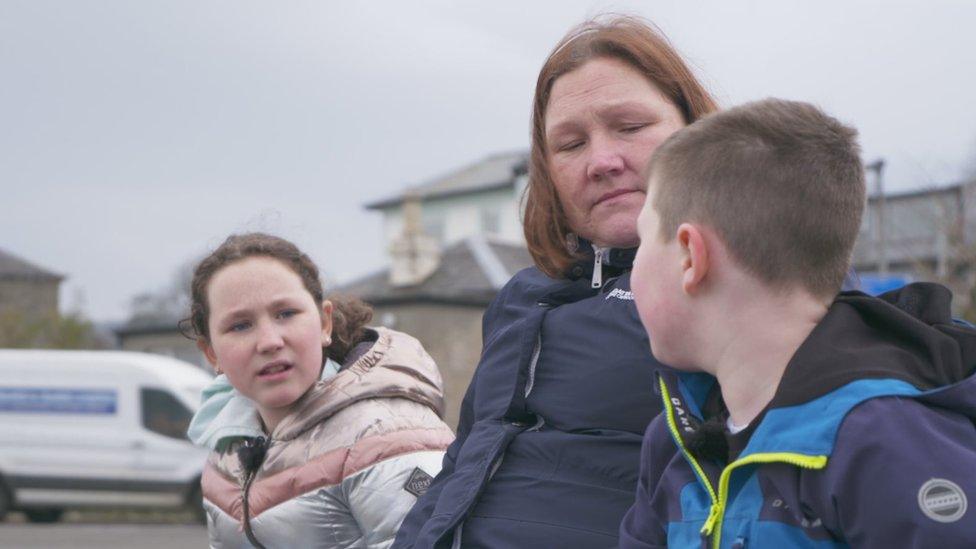
Hannah is a carer for her mum Vivienne and her brother David
Ten-year-old Hannah McGavin, from Dunoon, takes care of her mum Vivienne, who has health problems including arthritis of the spine, and her autistic brother David.
She said: "Sometimes my mum's always struggling with things. I know other people like some of my friends who are young carers - sometimes I notice that their families are getting a little bit more support than ours."
Hannah is in the process of applying for a young carer's statement - an official document which would identify her support needs.
She receives support from a local charity, including away days and counselling.
She added: "I'd rather do a little more fun and a little less caring sometimes. But it's what I need to do because I need to help David and my mum."
Argyll and Bute Health and Social Care Partnership said it was working closely with local carer organisations to implement the Carers Act.
A spokeswoman said a referral to the local social work team would be encouraged for any carers nearing the eligibility criteria.

What do the figures show?
The Coalition of Carers in Scotland - working with Shared Care Scotland and the Coalition of Care Providers - and sent FoIs to all 32 councils in Scotland.
They received responses from 29 local authorities and three councils - East Dunbartonshire, Shetland and West Lothian - had not yet responded.
The findings highlighted:
Significant variations in the way the money was spent by each council
A total of £13m had been spent by councils on the Carers Act so far
Both Moray and Orkney councils had not allocated any of their share of the funding specifically toward implementing the Carers Act.
The charities also raised concerns that the share of the funding given to some councils had not been spent effectively, with a significant portion going on waiving fees for services provided to support carers. The charities said this was not directly related to extending support for carers under the terms of the Carers Act.
There was also evidence that some of the funding provided to councils simply replaced existing funding that had been discontinued.

'You don't get time to look after you'
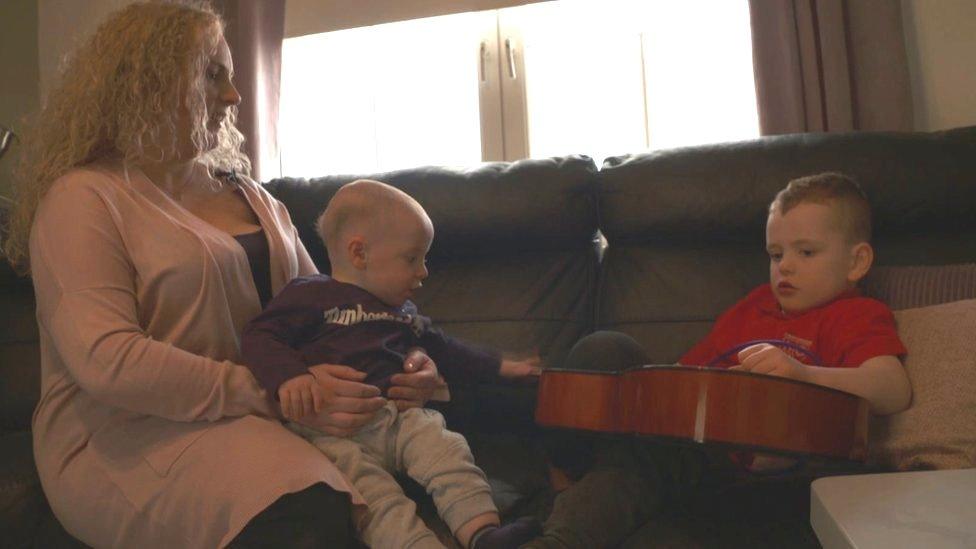
Donna Alcorn says she has not been getting the support she needs
Donna Alcorn, 34, from Parkhead in Glasgow, had to cut her hours as a dental nurse to care full-time for her six-year-old son Lewis. He has tuberous sclerosis, a condition that involves the growth of non-cancerous tumours in his brain. She also looks after nine-month-old baby Connor.
"It's mostly Lewis's challenging behaviours and seizure activity," she said.
"It's hard to deal with because it then makes you think, 'How much longer can I physically cope with Lewis?' That in itself is a massive fear for me.
"We get 24 nights a year at a residential respite. It's the only two nights a month where we know we won't be woken up by screaming or shouting in the middle of the night."
She added: "The supports that were supposed to be put in place over the summer holidays didn't get put in place.
"You're a mess when you're a carer because you don't get time to look after you. Your sole focus is the person you're caring for.
"For somebody to be looking out for the carer would be quite nice."
Glasgow Health and Social Care Partnership said it had carried out "a comprehensive needs assessment" and "a substantial budget" had been provided for support costs in this case.

'Resources should support carers'
A Scottish government spokesman said last year's budget included £66m to "support additional expenditure by local government on social care, including the Carers Act".
She added: "We've provided £17.4m to local authorities to fully fund the implementation of the Carers Act. Along with integration authorities they are responsible for how they deliver support to carers in keeping with the legislation.
"While this may lead to some variation in the nature of the service delivered by each local authority to reflect their local circumstances, we have been clear in our expectation that the resources we have provided should support carers"
The budget for delivering the Carers Act is expected to be increased by £10.5m next year.
Councillor Stuart Currie, Cosla's health and social care spokesman, said "We are aware that work is underway locally to change systems which could impact on the figures reported.
"Concerns were raised by Cosla around the funding of the act and we have committed to working with Scottish government to ensure that the policy is fully funded to allow councils to fulfil their duties."
- Published11 July 2017
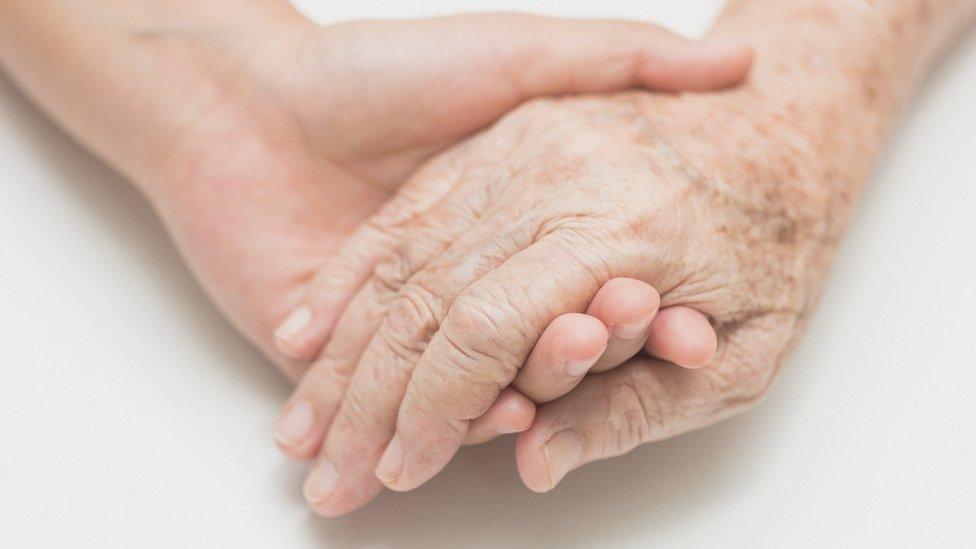
- Published4 February 2016

- Published21 September 2015
